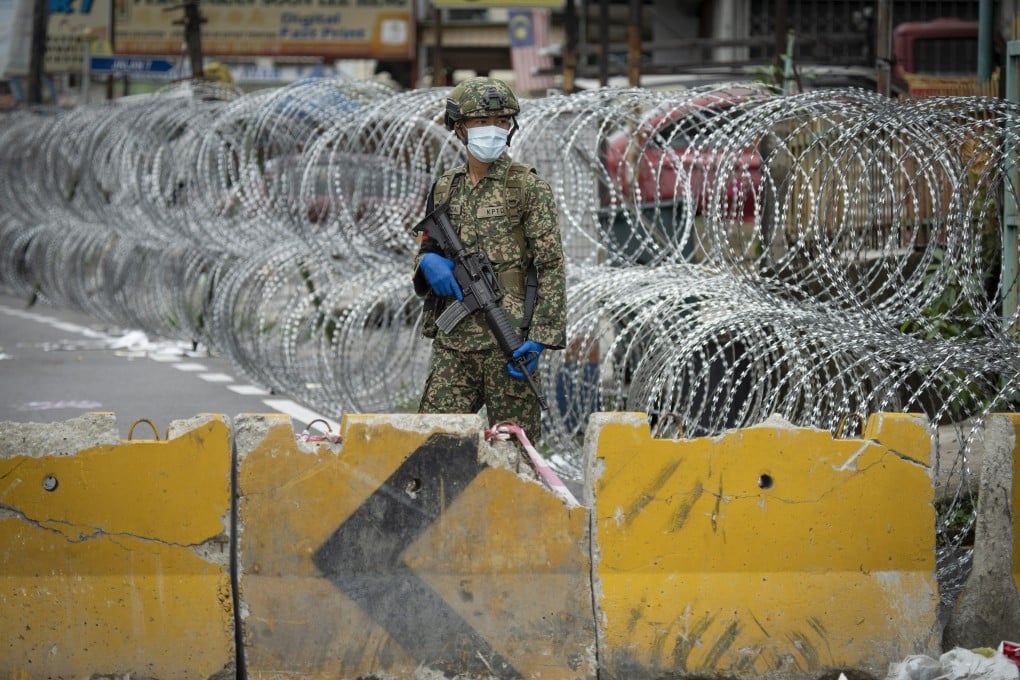Advertisement
Malaysia’s coronavirus lockdowns a ‘blessing in disguise’ for reducing Isis threat: counterterrorism chief
- Normah Ishak says just seven terror suspects were arrested last year, down from 72 in 2019, after movement restrictions to curb Covid-19 ‘flattened the curve of terrorism’
- She adds that the release in Indonesia of Abu Bakar Bashir, the co-founder of Jemaah Islamiah, does not have implications for extremist activity in Malaysia
Reading Time:4 minutes
Why you can trust SCMP

Malaysia’s counterterrorism chief says lockdowns resulting from the Covid-19 pandemic have been a “blessing in disguise” in reducing the terror threat posed by Islamic State (Isis) supporters in the country, adding that the release of a radical Indonesian cleric is unlikely to reactivate local terror cells of the al-Qaeda-linked Jemaah Islamiah (JI).
Normah Ishak, head of Counter-Terrorism Division of the Special Branch – the intelligence arm of the Malaysian police – and the first woman to hold the position, said there were seven terror suspects arrested last year, down from 72 in 2019.
“Covid-19 came to Malaysia as a blessing in disguise. Due to … pandemic prevention measures, daily movement and activities have been restricted,” she said at the online Symposium on Preventing and Countering Violent Extremism in Southeast Asia, which began on Tuesday and runs for two weeks.
Malaysia’s detained four men in 2013 in its first Isis-linked arrests, a figure that increased to 82 in 2015 and peaked at 119 a year later. There were 106 people arrested in 2017 and 85 in 2018.
Advertisement
Normah said lockdowns last year had “flattened the curve of terrorism” as the restrictions had affected everyone across the social spectrum, including Isis supporters.
Movement in various regions across Malaysia was restricted across a nine-month period last year to curb the spread of the disease. On Wednesday, amid a surge in Covid-19 cases, the government once again placed most of the country under some form of lockdown, banning interstate travel.
Advertisement
The country’s king also agreed to declare a state of emergency to give authorities more power to combat the pandemic, though critics said this offered a reprieve to embattled Prime Minister Muhyiddin Yassin, who is struggling to stay in power.
Advertisement
Select Voice
Select Speed
1.00x